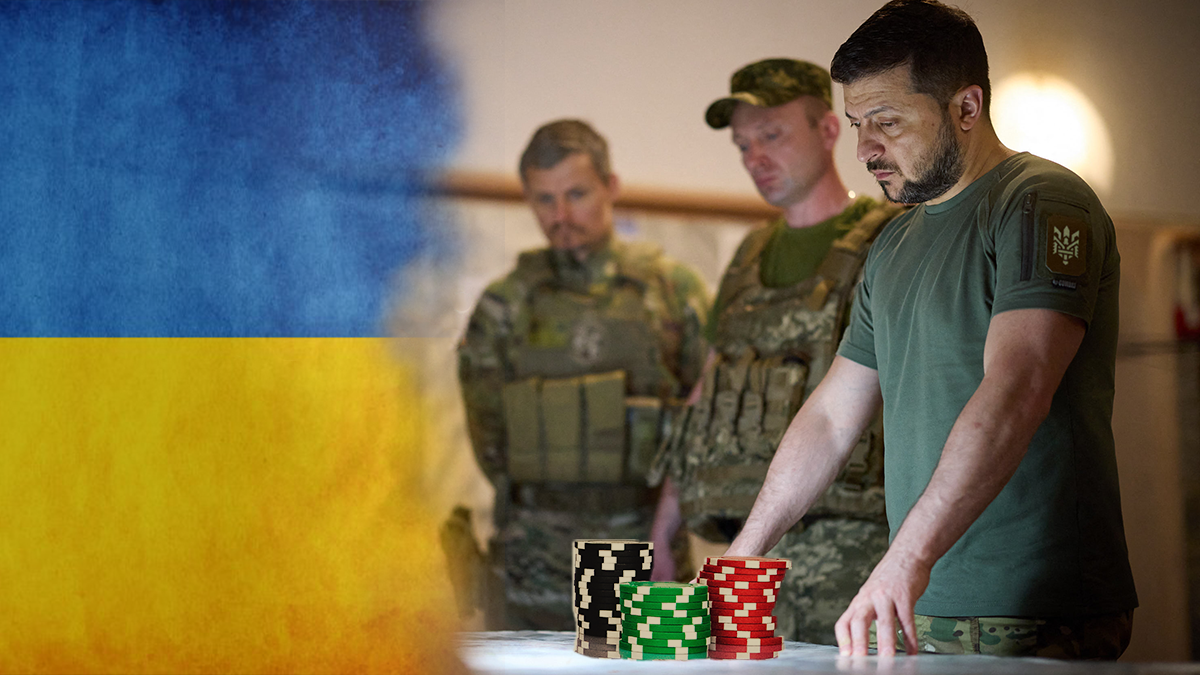During a speech on Wednesday, Ukraine’s President Volodymyr Zelensky made a striking statement: “This Russian war … began with Crimea and must end with Crimea — with its liberation.” He added a bold prediction: “I know we will return to the Ukrainian Crimea.”
In the process, Zelensky has defined victory not just as the erasure of Russia’s territorial gains since the invasion began on February 24; he’s said victory demands the eviction of Russian troops and civilians from the Crimean Peninsula, which Russia has controlled since 2014. And he says victory will be achieved.
Zelensky’s statement would be easier to dismiss as empty bravado were it not for the startling series of explosions that inflicted major damage on a Russian military airfield in Crimea just hours earlier. Later comments from Ukrainian officials have marked this moment as the beginning of a major new counteroffensive in southern Ukraine that they believe “could decide the outcome of the next phase of the war,” according to the Washington-based Institute for the Study of War.
At times since the invasion, Zelensky has signaled he’s willing to offer concessions on important issues, including territory, to reach a ceasefire with Russia. This new direction raises a basic question for the future of the war: Why has Zelensky insisted that victory must include the recapture of Crimea?
Here are three possible answers.
- He believes it. He considers the retaking of Crimea both necessary and achievable. The arrival of US weapons and promises of more have persuaded him that Ukraine is about to deal Russia some heavy battlefield blows. Financial help from Europe bolsters his confidence that Ukraine can keep the lights on and finance its war effort.
- He’s just projecting confidence for Ukraine’s foreign backers. Zelensky knows that no one wants to spend precious resources on a lost cause. Future US and European military and financial support depend on confidence that Ukraine can survive. With a show of confidence that Ukraine is about to go on the offense, he hopes to bolster foreign faith in his country’s capabilities
- He’s just projecting confidence for exhausted and demoralized civilians and troops. Since Ukrainian forces scored early victories that repelled Russia’s early bid to seize Kyiv, Russia’s grinding advance in the country’s east has kept Ukraine on the defensive. Aware that Ukrainians don’t want to give Russia any territorial concessions, Zelensky wants to boost their confidence and persuade them he won’t trade land for peace.
The answer could be some combination of all three. But Zelensky’s bold statement also poses three risks for Ukraine.
- He might push Russia to raise the stakes. Vladimir Putin now considers Crimea part of Russia, even if most of the world refuses to recognize this eight-year-old claim, and the seizure of Crimea won Putin a legacy-defining accomplishment and big popularity boost at home. Any attempt to evict Russia will provoke Putin to find (potentially explosive) new ways to punish Ukraine and all who support it.
- As a result, Ukraine’s foreign allies, eager to limit the scope of this war, might pump the brakes. US and European public comments aren’t likely to change, but they may well be warning Zelensky privately that his goal is not achievable and will harm the larger war effort.
- Zelensky could inadvertently set up his own people for a disillusioning end of the war. By insisting there is no victory without the recapture of Crimea, Zelensky is setting a bar he might not clear. Crucially, that might make it much harder to sell the Ukrainian people on an otherwise good deal to end the war and protect Ukraine’s future.
Zelensky’s comments and the damage to Russia’s military airbase inside Crimea have now put the ball squarely in Putin’s court, but Ukraine’s beleaguered people and their Western allies will be watching closely to see what Ukraine’s president says next.
